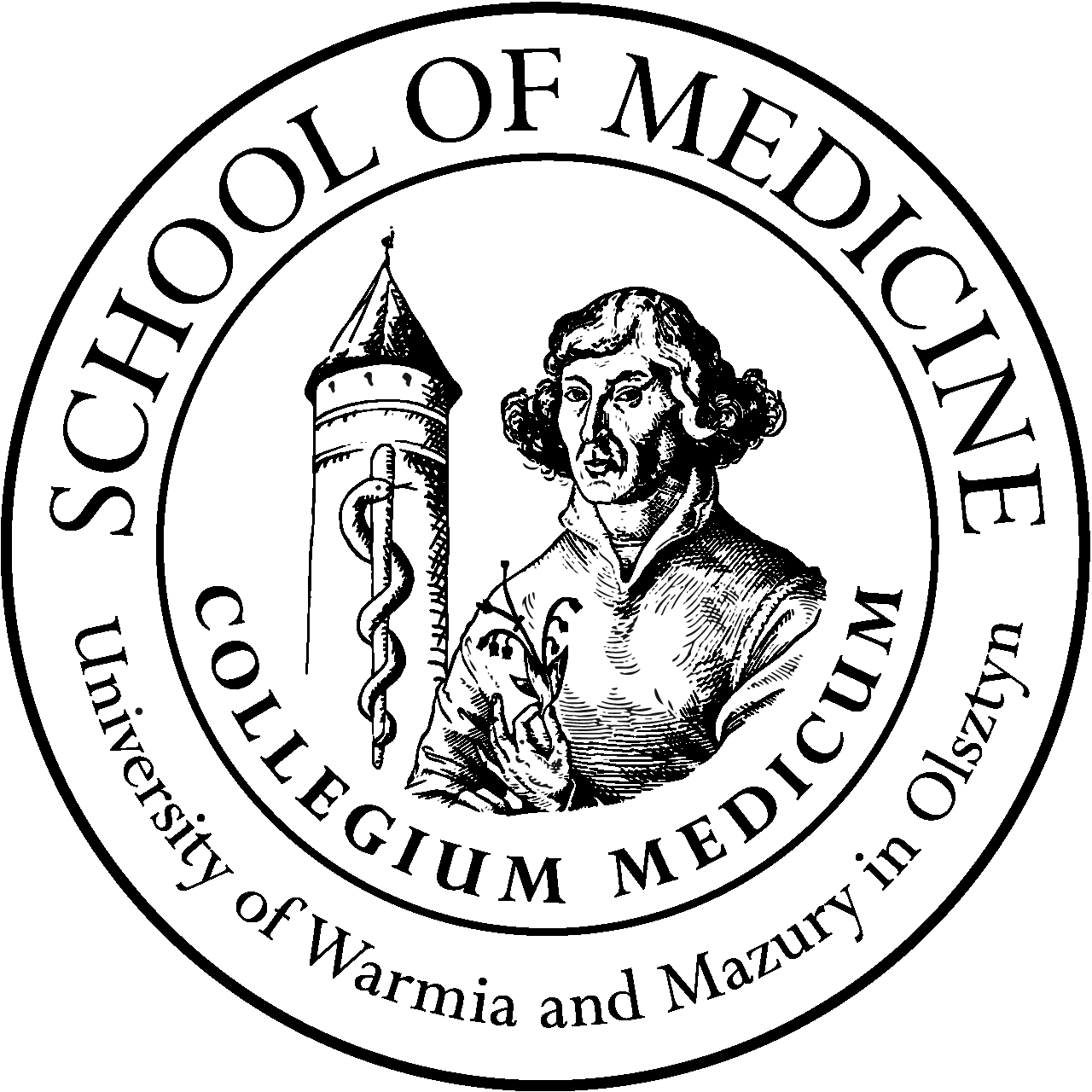2. Organization of studies § 2-§ 7
§ 2
- The academic year begins on October 1 and lasts until September 30 of the following calendar year and is divided into two semesters - winter and summer.
- Each semester includes:
1) a 15-week period of didactic classes,
2) an examination session,
3) re-sit examination session,
- In the case of studies starting from the summer semester of a given academic year, the first year of studies is carried out over two semesters, i.e.
1) first semester (summer) – in the academic year of commencing studies,
2) second semester (winter) – in the next academic year.
- The framework organization of the academic year is determined annually by the Rector before it begins.
- The Rector may establish additional days off from classes during the year and, if necessary, suspend classes on specific days and times.
- The detailed organization of the academic year at the faculty, major, level and year of study is established by the dean in consultation with the faculty body of the Student Government, subject to sec. 7 and § 3 sec. 2 and 3.
- It is possible to start classes earlier than in October, apart from classes at the first year of studies.
§ 3
- The curriculum, including syllabuses containing, inter alia: the purpose of education, description of content and learning outcomes, forms and conditions for passing individual subjects and internships, and description of acquired qualifications, are made available to students on the faculty website and using other information media adopted at the University.
- The weekly timetable developed after consulting the faculty body of the Student Government shall be made available to students at least 7 days before the start of each semester, being posted on the dean’s office notice board and on the faculty website.
- A detailed plan of examination sessions is prepared by the faculty body of the Student Government in agreement with the teachers, approved by the dean and communicated to students at least 7 days before the start of the examination session being posted on the dean’s office notice board and on the faculty website.
§ 4
- In order to improve the process of education, year tutors and tutors of scientific circles are appointed from among the academic teachers; tutors of student groups may also be appointed for full-time studies.
- Year tutors and tutors of student groups are appointed and dismissed by the dean after consultation with the faculty body of the Student Government.
- Tutors of scientific circles are appointed and dismissed by the dean after consultation with a representative of the dean for scientific circles.
- Basic duties of a tutor include providing students with help, advice and consultations on matters related to their didactic and social problems, as well as providing opinions at the student’s request or at the dean’s request for individual matters related to the course of study.
- Detailed tasks of year tutors, tutors of student groups and tutors of scientific circles are specified by the dean.
- Year tutors also perform the function of scientific supervisors for persons admitted to studies as part of the procedure of confirming learning outcomes.
- Persons admitted to studies under the procedure of confirming learning outcomes, implement the education process according to the individual organization of studies referred to in § 12.
- Faculty Tutors of Disabled Students are appointed from among the academic teachers to organize and conduct activities aimed at ensuring equal opportunities for the implementation of the curriculum and study plan by persons with disabilities. The decision on this matter is made by the dean.
- Detailed tasks of Faculty Tutors of Disabled Students are defined by the dean.
§ 5
- Studies at the University are conducted as BA studies, supplementary MA studies and long-cycle MA studies.
- Studies are conducted according to specific curricula adjusted to learning outcomes for a given major, level and education profile as well as principles for the development of curricula by the Senate.
- The curriculum may include sequential classes, i.e. subjects including knowledge, skills and social competences with learning outcomes assigned to them, the achievement of which allows them to acquire knowledge in the areas specified for the subjects provided for in the curriculum of the next semester.
- As part of the curriculum, the period of completing a subject/internship and the method of completing it are determined. Every subject/internship ends with an exam or credit.
- Lectures are conducted by academic teachers with the academic title of Professor or holding the academic degree of habilitated doctor.
- In particularly justified cases, after consulting the dean’s council, the dean may entrust lectures to an academic teacher holding the scientific title of doctor.
- In particularly justified cases, at the dean’s request, approved by the dean’s council, the deputy rector competent for education may entrust teaching classes related to practical professional preparation to a person with a title of master, master engineer or equivalent, having professional experience acquired outside the university, adequate for classes.
- The course of studies is documented in semester periodic cards of student achievements prepared in the form of printouts from information systems and can be documented in subject completion reports prepared in the form of printouts of electronic data.
§ 6
- Studies at the University are conducted in a specific major, at a specific level and profile.
- Education may take place within specific scopes of particular studies.
- If there are several scopes of study, the student chooses one of them within the time limit set by the dean.
- If organizational considerations do not allow admission of all interested persons to a given scope, the dean shall decide about the admission, taking into account, among others organizational capabilities, student interests and past study results.
- When choosing a laboratory related to the scope of education and the diploma seminar, the provisions of sec. 3-4 shall apply.
- Students undertake studies according to the curriculum in force in the academic year in which they started studying. Changes to the curriculum may be introduced no later than 5 months before the beginning of the academic year.
- The provisions of sec. 6 do not apply to students repeating a semester or transferred from another university and continuing education after at least one year’s leave. In this case, the student is required to complete compensatory courses to resolve differences in curricula. The dean decides about the scope, manner and deadline for completing compensatory courses.
- Didactic classes at the University may be conducted in a foreign lecture language.
- In the case referred to in sec. 8, knowledge and skills tests, as well as diploma exams, are conducted in the language of the lecture. Diploma dissertations may also be prepared in a foreign language.
- Didactic classes during studies may be conducted using remote learning methods and techniques.
- Didactic classes during studies, as well as credits and exams, may be conducted using alternative solutions facilitating the study for persons with disabilities referred to in § 18 sec. 8 and § 20 sec. 5. The methods used should take into account the degree and nature of a student’s disability and the specificity of individual majors.
- Students referred to in sec. 11 include:
1) persons with disabilities who have a valid disability certificate or equivalent document,
2) chronically ill persons who do not have a disability certificate, whose health situation is confirmed by medical documentation, submitted to the office for the disabled,
3) persons whose sudden illness or accident results in temporary inability to fully participate in classes, and these circumstances are confirmed by medical documentation submitted to the office for the disabled.
- The use of alternative solutions must not lead to a reduction in the substantive requirements for students with disabilities.
- The decision to apply specific alternatives to a student with a disability is made by the dean at the student’s written request. The dean may consult the head of the office for disabled persons.
§ 7
- The University has a European Credit Transfer and Accumulation System (ECTS).
- In the case of credits and exams, apart from grades, appropriate evaluation of learning outcomes is used.
- One ECTS point corresponds to learning outcomes, which require an average of 25-30 hours of work for a student, the number of hours of student work includes classes organized by the university, in accordance with the curriculum and students’ individual work.
- Points are assigned for passing each of the classes and internships provided for in the curriculum; the number of ECTS points does not depend on the grade obtained, and the condition for granting them is that the student meets the requirements for achieving the assumed learning outcomes, confirmed by completing classes or internships, and preparation and submission of the diploma dissertation or preparation for the diploma examination.


